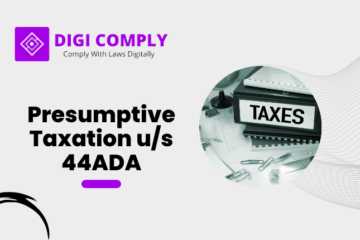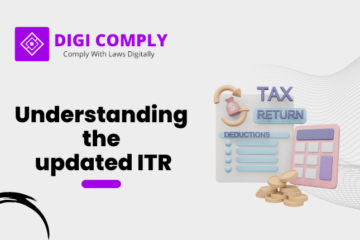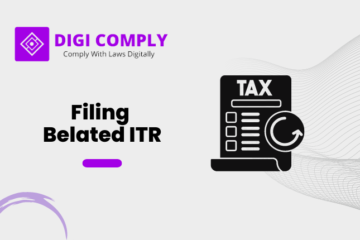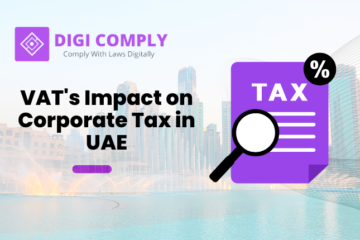In December 2022, the United Arab Emirates (UAE) introduced the Corporate Tax Law (CTL) through Federal Decree-Law No. (47) of 2022 on the Taxation of Corporations and Businesses. This significant legislation became effective on 1 June 2023, ushering in a new era of taxation for businesses operating in the country. The CTL establishes a primary corporate tax rate of 9% on income exceeding AED 375,000 (approximately USD 102,000). However, it also introduces a game-changing provision for “Qualifying Free Zone Persons” (QFZPs), allowing them to benefit from a 0% corporate tax rate on their qualifying income while still imposing a 9% tax rate on their non-qualifying revenue.
Clarity through Cabinet and Ministerial Decisions
The anticipation surrounding the implementation of the CTL reached its pinnacle when, on 1 June 2023, the UAE Ministry of Finance issued two critical documents: Cabinet Decision No. 55 of 2023 on “Determining Qualifying Income for the Qualifying Free Zone Person” and Ministerial Decision No. 139 of 2023 on “Qualifying Activities and Excluded Activities.” These decisions have been instrumental in shedding light on the tax treatment of Free Zone Persons and have provided much-needed clarity on the criteria for determining whether a Free Zone Person qualifies to be taxed as a QFZP.
Defining Qualifying Income
To fully grasp the implications of these decisions, it is vital to understand what constitutes “Qualifying Income” for QFZPs, as outlined in Article 18 of the CTL. Qualifying Income includes three key components:
1. Income from Transactions with Other Free Zone Persons:
Under the CTL, income derived from transactions with other Free Zone Persons falls under Qualifying Income. It’s important to note that this provision excludes income derived from specific activities deemed as “excluded activities” (Excluded Activities).
2. Income from Transactions with Non-Free Zone Persons:
QFZPs are eligible to enjoy the benefits of Qualifying Income even when engaged in transactions with Non-Free Zone Persons. However, this applies only to “qualifying activities” (Qualifying Activities) that are not listed as Excluded Activities.
3. Other Income Satisfying De Minimis Requirements:
The CTL has introduced specific de minimis requirements (De Minimis Requirements) that a QFZP must meet to consider any other income as Qualifying Income. These requirements are intended to ensure that the tax benefits are accorded to businesses genuinely contributing to the Free Zones’ economic growth.
Benefits and Implications
The introduction of the CTL and the subsequent Cabinet and Ministerial Decisions have significant implications for businesses operating in the UAE. The option for QFZPs to benefit from a 0% corporate tax rate on their Qualifying Income can be a game-changer, attracting more businesses to Free Zones and fostering an environment of economic growth and investment.
However, businesses must exercise caution and adhere to the provisions outlined in the legislation and decisions. Compliance with the qualifying criteria and careful consideration of activities falling under Excluded Activities will play a crucial role in determining the tax treatment applied to their income.
Defining Qualifying Activities in a Qualified Free Zone Company
A Qualified Free Zone Company (QFZP) engages in a variety of activities that are considered Qualifying Activities, granting it special benefits and privileges. These activities, which contribute to the economic growth and development of the United Arab Emirates (UAE), are subject to specific regulatory oversight by the competent authority in the country.
1. Manufacturing and Processing: The QFZP is involved in the manufacturing and processing of goods or materials. This encompasses the production and transformation of raw materials into finished products within the free zone.
2. Holding of Shares and Securities: The QFZP is eligible to hold shares and other securities, making it an investment-friendly entity within the designated free zone.
3. Ownership, Management, and Operation of Ships: The company is authorized to own, manage, and operate ships, facilitating maritime trade and transport activities.
4. Reinsurance Services: The QFZP provides reinsurance services, subject to the regulatory oversight of the competent authority in the UAE. This ensures compliance and reliability in the insurance industry.
5. Fund Management Services: The company is involved in fund management services, overseen by the competent authority in the UAE, contributing to the growth of the financial sector.
6. Wealth and Investment Management Services: The QFZP offers wealth and investment management services, regulated by the competent authority in the UAE, providing professional financial guidance.
7. Headquarters Services: The company provides headquarters services to related parties, acting as a central hub for strategic decision-making and coordination.
8. Treasury and Financing Services: The QFZP offers treasury and financing services to related parties, streamlining financial operations within the organization.
9. Aircraft Financing and Leasing: The company engages in financing and leasing of aircraft, including engines and rotable components, contributing to the aviation sector’s expansion.
10. Distribution of Goods or Materials: The QFZP facilitates the distribution of goods or materials within or from a “Designated Zone” to customers who resell, process, or alter these goods or materials for the purpose of sale or resale.
11. Logistics Services: The company provides logistics services, efficiently managing the flow of goods and materials within the free zone.
12. Ancillary Activities: The QFZP may also perform ancillary activities that are directly related and supportive of the activities listed above, enhancing overall operational efficiency and effectiveness.
By engaging in these Qualifying Activities, the Qualified Free Zone Company enjoys various incentives and advantages, promoting economic growth and attracting foreign investment to the UAE’s free zones. However, it is crucial for the company to adhere to the regulatory guidelines set forth by the competent authority to ensure compliance and foster a conducive business environment.
Excluded Activities
Certain activities fall under the category of Excluded Activities and are not eligible for certain tax benefits. These activities include:
1. Transactions with natural persons, except for specific Qualifying Activities outlined in paragraphs (d), (f), (g), and (j) of the aforementioned section.
2. Banking activities that are subject to regulatory oversight by the competent authority in the UAE.
3. Insurance activities that are subject to regulatory oversight by the competent authority in the UAE, with the exception of the activity specified in paragraph (e) of the above section.
4. Finance and leasing activities that are subject to regulatory oversight by the competent authority in the UAE, excluding those specified in paragraphs (i) and (j) of the above section.
5. Ownership or exploitation of immovable property, except for commercial property located in a Free Zone where the transaction involves other Free Zone Persons.
6. Ownership or exploitation of intellectual property assets.
7. Activities ancillary to the activities listed in paragraphs (a) to (f) above.
De Minimis Requirements
Non-Qualifying Revenue refers to revenue generated during a tax period from the following sources:
1. Excluded Activities as mentioned above.
2. Activities that do not qualify under the specified criteria, where the counterparty in the transaction is a Non-Free Zone Person.
To meet the De Minimis Requirements, the following conditions must be satisfied:
1. Non-Qualifying Revenue derived by the QFZP (Qualified Free Zone Person) in a tax period should not exceed 5% (five percent) of the total revenue earned by the QFZP during that tax period; or
2. AED 5,000,000 (approximately USD 1.4 million), whichever amount is lower.
In cases where any of the following occur:
1. The De Minimis Requirements threshold is surpassed.
2. The QFZP fails to meet the eligibility conditions outlined in Article 18 of the CTL (Corporate Tax Law).
3. The QFZP fails to fulfill any other conditions prescribed by the Minister.
Then, the Free Zone Person will not be eligible to be considered a QFZP starting from the relevant tax period and the subsequent four tax periods.
Additional Criteria
In order to qualify as a Qualified Free Zone Participant (QFZP), certain supplementary criteria must be fulfilled. These conditions are outlined as follows:
1. Conducting Core Income-Generating Activities in a Free Zone: The entity seeking QFZP status must primarily undertake its income-generating activities within a designated Free Zone. The extent of these activities should be commensurate with the scale of operations, and the entity must possess sufficient assets, employ an appropriate number of qualified personnel, and incur an adequate level of operational expenses to support its operations effectively.
2. Preparation of Audited Financial Statements: To adhere to the requirements set forth by the relevant authorities, the QFZP is obligated to prepare audited financial statements. These financial statements must comply with any guidelines or directives issued by the Minister pertaining to the preparation and maintenance of audited financial records for the purposes of the CTL (Controlled Trade License).
By satisfying these additional requisites, an entity can attain the esteemed status of a Qualified Free Zone Participant, which may bestow various benefits and privileges offered within the Free Zone environment. Adhering to these criteria not only strengthens the entity’s position within the Free Zone but also demonstrates its commitment to transparency and financial accountability.
If You have any queries then connect with us at support@legalsuvidha.com or info@digicomply.in & contact us & stay updated with our latest blogs & articles





